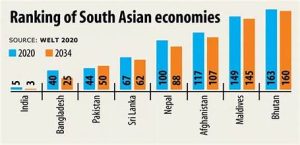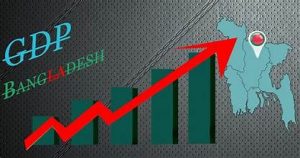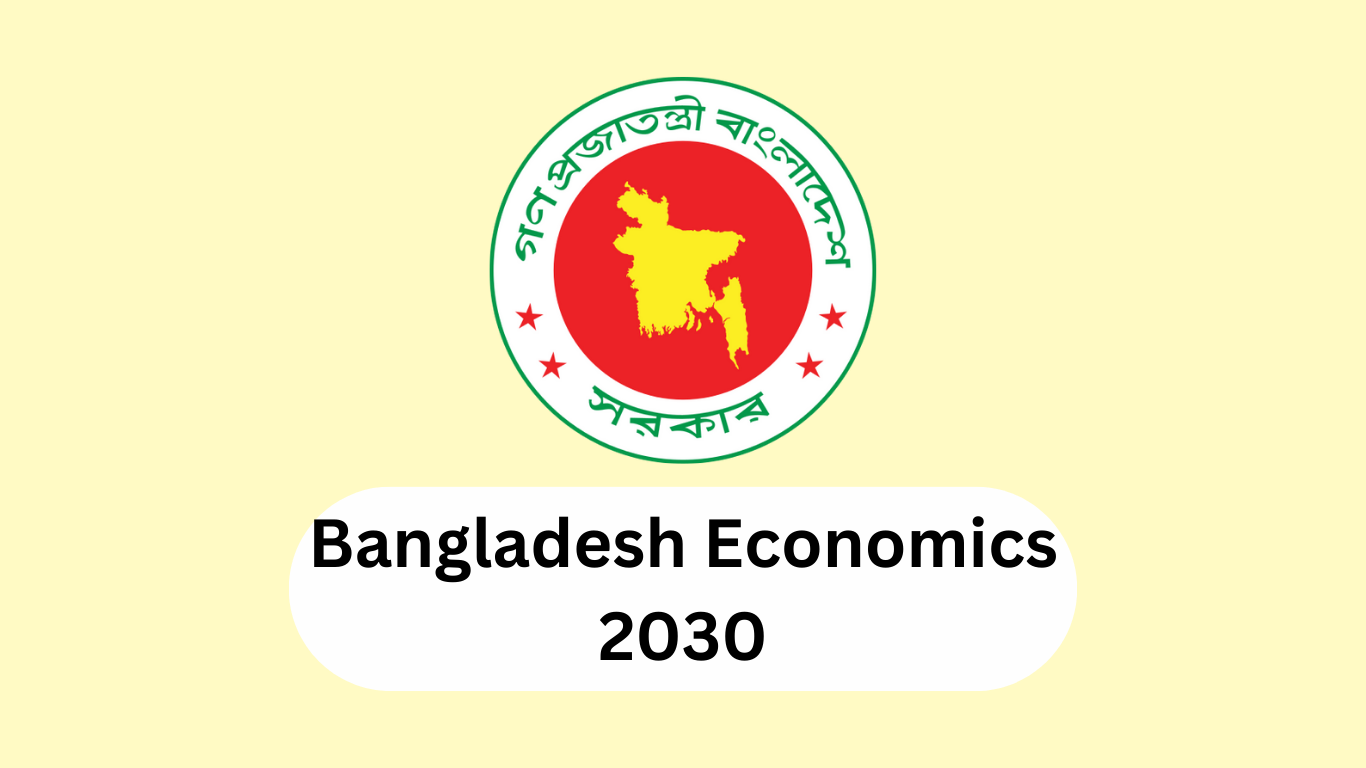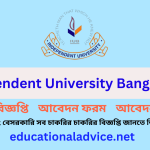Do you know what will happen in Bangladesh in the future???
Bangladesh Future Economics in 2030. Social distancing and working from home in Dhaka – as elsewhere in the country of 165 million – have presented challenges to many professionals and Organizations, but do not seem to be grinding the country’s economy to a halt. Things would have turned out very differently 15 years ago, however.

Robust Economic Growth:
Bangladesh has maintained an impressive average GDP growth rate of around 6% over the past several years, driven by strong performance in the garment, agriculture, and services sectors. This growth trajectory is expected to continue in the lead-up to 2030, with projections of GDP growth reaching 7-8% per annum.
Diversification of Economy:
Bangladesh is actively diversifying its economy beyond its traditional reliance on the garment industry. The government is promoting investments in manufacturing, infrastructure, information technology, and other sectors to create a more balanced and resilient economy.
Demographic Dividend:
Bangladesh has a young and growing population, providing a demographic dividend that can fuel economic growth.
The country’s labor force is expected to increase by over 20 million by 2030, creating a pool of skilled and semi skilled workers.
Infrastructure Development:
Bangladesh is investing heavily in infrastructure development, including roads, railways, ports, and power generation. These infrastructure improvements will enhance connectivity, reduce transportation costs, and facilitate trade.
Entrepreneurial Spirit:
Bangladesh has a vibrant entrepreneurial culture, with a growing number of small and medium-sized enterprises (SMEs) contributing to the economy. The government is supporting SMEs through initiatives like access to finance, training, and market access.
Regional Integration:
Bangladesh is actively participating in regional economic integration initiatives, such as the South Asian Association
for Regional Cooperation (SAARC) and the Bangladesh-India-Myanmar-Sri Lanka Economic Corridor (BIMSTEC). These initiatives aim to promote trade, investment, and connectivity within the region.
Digital Transformation:
Bangladesh is embracing digital technologies to improve efficiency, transparency, and access to services. The government is promoting e-governance initiatives, digital financial inclusion, and the development of a knowledge-based economy.
Human Capital Development:
Bangladesh is prioritizing education and skills development to enhance the productivity of its workforce. The government is expanding access to quality education and vocational training to meet the demands of the evolving economy.
Sustainable Development:
Bangladesh is committed to sustainable development, incorporating environmental and social considerations into its economic policies. The country is pursuing initiatives in renewable energy, climate change adaptation, and environmental protection.
Global Recognition:
Bangladesh is gaining international recognition for its economic achievements and development progress. The country is attracting foreign investment, increasing its trade volume, and improving its global competitiveness. In conclusion, Bangladesh is on a promising trajectory towards becoming a middle-income country by 2030. Its economic growth is expected to be sustained by a combination of factors, including a young and growing population, infrastructure development, a diversified economy, and a focus on sustainable development. The country’s entrepreneurial spirit, regional integration efforts, and digital transformation are also contributing to it economic transformation. As Bangladesh continues to address challenges such as poverty reduction, income inequality, and climate change, it is well-positioned to achieve its economic goals and play a more prominent role in the global economy.

Government commitment:
Leading global IT service providers such as Wipro, IBM, TCS, NTT Data,
Infosys and WPP have already entered the market through setting up
delivery centress and joint ventures with local companies, but Bangladesh
is widely deemed to have a long way to go to catch up with the leading
countries that provide ICT services to the world.
At EducationalAdvice.net, our mission is to provide valuable educational resources and advice to help you succeed in your academic journey. We strive to create content that is informative, engaging, and relevant to your needs. Seeing you actively engaging with our articles, sharing your thoughts, and seeking knowledge from our platform is truly inspiring.
Once again, thank you for being a part of our journey. We value your presence and look forward to continuing to serve you with valuable educational advice.
With warmest regards,
[EducationalAdvice.net Team]









